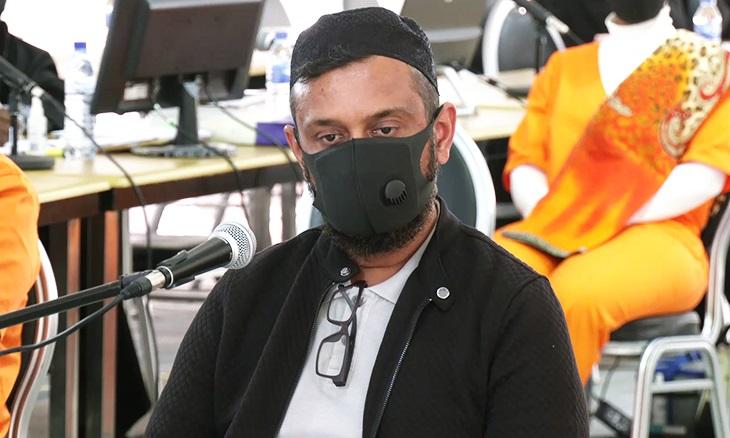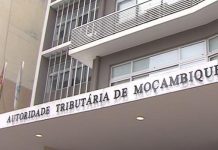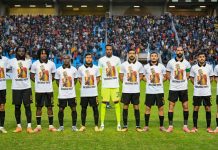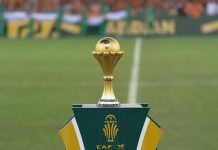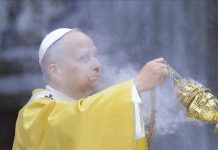Africa-Press – Mozambique. Businessman Zulficar Ahmad, charged with money laundering in the trial of 19 people before the Maputo City Court, all accused of crimes in connection with the case of Mozambique’s “hidden debts”, on Friday told the judge, Efigenio Baptista, that he would never have allowed a mysterious Brazilian friend to deposit 100,000 US dollars in his bank account, if he had suspected that the money came from illicit sources.
The prosecution believes that the money came from the Abu Dhabi based group, Privinvest, which is at the heart of the scandal. Ahmad, however, claimed that a man whom he called a “Lebanese Brazilian”, and named as Marco Calafiore, asked to use his account to deposit a cheque for 100,000 dollars, and then withdraw it, bit by bit, in cash.
Calafiore was living in the South African town of Komatipoort, and made regular visits to Mozambique. Ahmed described his as “a good friend”, but could not answer basic questions about him. He did not know his friend’s address in Komatipoort, and could not remember his phone number. He could not remember which hotels Calafiore had stayed in during his visits to Maputo, nor what car he drove (except that it was blue).
Calafiore has died and Ahmad said he attended the funeral in South Africa – but he could not recall the year of his great friend’s death.
As for Calafiore’s occupation, Ahmad said “I think we was a car salesman”. He first met Calafiore in a mosque, but Ahmad could not remember when – perhaps it was 2008, perhaps 2010.
But when Calafiore said he needed to deposit 100,000 dollars, Ahmad gladly gave him his bank account details. Calafiore, he said, did not have an account denominated in dollars. In fact, he did not have any Mozambican accounts at all, and he wasn’t sure whether he had accounts in South Africa either.
Under questioning, it turned out that Ahmad did not have a dollar account either. He opened one at the BCI (Commercial and Investment Bank) specifically to receive the 100,000 dollar cheque. Prosecutor Sheila Marrengula said his bank statements showed no activity before receiving that cheque.
Then Ahmad took the money out, but under the bank’s rules he could not take out more than 5,000 dollars at a time. Marrengula showed him a series of BCI cheques he had cashed, some for exactly 5,000 dollars, some for smaller amounts. He cashed some of them himself, while his wife and his two business partners cashed others, and then gave him the money.
The bank demands explanations for dollar withdrawals, and each time Ahmad said the money was intended to pay for “tourism expenses abroad”.
Every now and then Calafiore would turn up in Maputo, and Ahmad would give him the money, usually about 25,000 dollars a time.
Asked what he earned from this arrangement, Ahmad said Calafiore paid him 2,000 dollars to offset bank costs, He told the court he had no idea of the true source of the 100,000 dollars
Nor did he have any way of proving that he had given the cash to Calafiore. Indeed, during the preliminary investigations, one of Ahmad’s partners, Osman Momade, admitted he had used some of the cash he had withdrawn from Ahmad’s account to pay for his daughter’s medical treatment in South Africa, and to buy a car.
Baptista found Ahmad’s story incredible, and said so. “Is there any logic to this story?”, he asked. “Would you believe this story, if anybody else told it?”
“I know that defendants have the right to tell lies, but this case is not a joke”, the judge added. “This is serious and it can decide your life”.
He offered Ahmad the chance to change his story, but he did not take it. He did, however, offer to pay the Mozambican state the 2,000 dollars which he claimed was the only benefit he obtained from the deal.
A second defendant, Crimildo Manjate, said he had sold an unfinished outhouse, in the Jonasse neighbourhood on the outskirts of Maputo to Leopoldo Buque for 125,000 dollars. Since nobody in their right mind would pay that much for a ruin, it is virtually certain that what Buque was really buying was the right to use the plot of land (measuring 90 by 45 metres).
Buque, also known as Pondeca, is the brother of Angela Leao, the wife of Gregorio Leao, who was the general director of the Security and Intelligence Service (SISE) under former President Armando Guebuza.
The prosecution puts Angela Leao and her real estate dealings at the heart of a money laundering operation driven by the many million dollars in bribes paid by Privinvest.
The court now has just two defendants left to interrogate next week. But these are arguably the most important of the defendants – Gregorio Leao himself, and one of his lieutenants, Antonio do Rosario, who was head of economic intelligence at SISE and then became chairperson of all three fraudulent companies which obtained 2.2 billion dollars from the banks Credit Suisse and VTB of Russia on the basis of illicit loan guarantees issued by the Guebuza government.
After the defendants have all had the say, the court will hear from the 60 witnesses it has called, including former President Guebuza himself.

